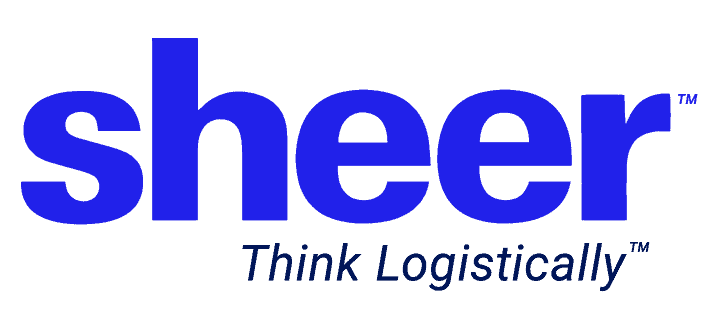If you’ve ever seen a kids’ soccer match, you know how adorable yet ineffective these games can be. The kids haven’t yet learned how to communicate and pass the ball well enough to get it in the right goal. Any semblance of “formation” goes right out the window with a mob of children chasing the ball around the field, and when they do score, it’s at least partly due to luck.
In the world of shipping, anything short of perfection can make your company look a little too much like 5-year-olds sporting their first pair of cleats. Even relatively minor delays can throw off schedules and disrupt the availability of goods far down the supply chain. This can cause major problems when trying to please customers, and if your company is inconsistent enough, they’ll look elsewhere regardless of how long they’ve been with your company.
The complex web of logistics that shippers deal with creates many opportunities for mistakes and financial losses. By overcoming these problems, however, shippers can deliver consistently excellent service, get their products and services where they need to go, and improve their bottom lines.
Here are the five most common shipping and supply chain challenges shippers face, along with real solutions for tackling those problems.
1. Tracking Shipments
Your customers want to know where their valuable shipments are at all times. To answer their questions, you have to call the carrier. You usually speak with a dispatcher, who then has to call his driver to get answers. This chain of communication will inevitably give you and your customers a headache.
There are many technological freight shipping tools available that improve shipment visibility with real-time tracking. With digital tools provided by a logistics service provider (LSP), you can deliver accurate shipment statuses, locations, and ETA information to your customers whenever they want to see it. Even if you miss a delivery target, people tend to be more understanding of shipping delays if they’re kept in the loop.
On your end, real-time tracking gives you the ability to proactively communicate, reschedule, and expedite when needed. An LSP can expedite, reorder a stop, transfer a load to a different carrier, or even divert the shipment to another delivery location. In the long term, these insights can improve your processes by changing order flows and deployment strategies.
2. Managing Claims and Disputes
Even with a perfect strategy, unexpected hiccups will happen. Items will sometimes break during their journey, and people will be understandably upset. In addition to potentially losing clients, your accounting team can spend hours making a case for who owes what.
Perceived customer service failures and shipping problems can cause you to lose business. We recommend outsourcing these tough conversations to someone trained in claim mitigation and dispute resolution with shipping companies. A 3PL like Sheer Logistics can manage these high-stakes tasks for you.
3. Auditing Invoices
Incoming invoices are often incorrect, making you rush to match them with corresponding quotes or contracts. You could lose a lot of money from invoice errors and overpayments, and avoiding this problem requires spending money on an auditing process.
This is another area where technological tools can reduce costs and ensure accuracy. Advanced LSPs allow you to electronically match invoices with quotes and automatically identify discrepancies.
4. Negotiating Carrier Contracts
Operating without a contract, routing vendor recommendations, and fielding multiple quotes with little data can negatively impact your logistics operation. Contract negotiations sometimes save you money, but even if they do, carriers can still plague your business with shipment issues that go unresolved. Freight claims can cost you money through write-offs, and you can suffer surplus expenses for product replacement (and labor) not covered by the carrier freight claim.
An ideal solution is a custom approach to identifying and securing the best carriers for your product, as well as a method for regularly reporting carrier performance. A typical 3PL will be able to supply the complete data you need to choose the ideal carriers for your logistics situation.
A thorough process can guarantee that you get the least costly provider with contracts that take more than just monetary savings into account. It allows you to monitor the real performance of your carriers, including historic data on missed pickups, on-time delivery rates, claims ratios, and more. You can then use this information to forecast annual budgeting and future carrier decisions.
5. Measuring Performance
Transparency is not something that Excel spreadsheets or manual data entry and reporting can provide. As a result, staff members from various departments are slowed down by gaps in communication and a lack of logistics information. When problems aren’t resolved, time and resources are wasted, shipping costs increase, and more employees need to be hired to reduce the initial waste. Using logistics analytics not only enhances transparency but also streamlines operations, leading to cost savings and increased efficiency across the board.
Sheer Has an Answer: Technology + Industry Expertise
The reality is that all five of these challenges can be solved with cutting-edge transportation management technology. Sheer Logistics provides the advanced tools and industry expertise shippers need to optimize their supply chain operations and take their businesses to the next level.
Be proactive in managing your logistics issues with a TMS that provides the necessary tools to maintain full visibility of your entire operation, coupled with a 3PL partner that understands your unique transportation challenges. MercuryGate TMS offers the scalability and customization users expect from industry-leading software combined with a simple user interface and the highest level of system functionality. Sheer Logistics is a MercuryGate Partner Integrator, one of a select few technology companies entrusted by MercuryGate to implement and integrate its entire suite of products. With MercuryGate and Sheer, you have the ability to:
Leverage Transportation Experts — Our decades of transportation experience with operational and executive resources work as an extension of your business.
Monitor Supply Chain Processes – The visibility you gain allows you to monitor individual processes.
Run Analytics – Take your most granular data, look behind the numbers, and gain knowledge about how those numbers are created to refine your supply chain strategy.
Act on Insights – The end result of granular analytics is the ability to use what you’ve learned to improve your processes.
Build New Capabilities – When you understand how your logistics truly works, you have the tools to enhance what you can do.
Set Up Custom Alerts and Key Performance Indicators – Enterprise TMS software is customizable for your needs, which means you’re notified when the data hits a certain threshold.
In the logistics world, transportation management means flawless communication, efficiency, and coordination. If your business struggles with these common shipping challenges, it’s time to upgrade your processes and technology. Reach out to Sheer today, and let’s discuss your next steps.




